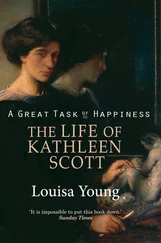Chinelo Okparanta
Happiness, Like Water
At the time of the robbery, Eze and Chinwe were living in the town of Elelenwo in Port Harcourt. They lived in Maewood Estates, which some of the neighbours called Ehoro’s Estate, because Ehoro was the surname of the owner.
Ehoro’s was a fairly large estate with about a dozen bungalows in it. The bungalows stood in clusters, separated only by gravel and grass, by the road connecting them, and by trees: orange trees, guava trees and plantain trees. There was a driveway in front of each bungalow, and each bungalow had a garage.
A cement wall rose high along the perimeter of the estate, and with it, two oversized metal gates, one at the entrance, the other at the exit. The top of the cement wall (and the tops of the adjoining gates) were lined with shards of glass — green glass, clear glass, and brown glass — the way walls and gates in Port Harcourt are still lined today.
Outside the estate, along the main road leading up to its entrance, were small shops whose owners sold Nabisco wafers and Ribena juices, tinned tomatoes and sardines in a can.
In the evenings, vendors put up makeshift stands in the spaces between the shops. There, they sold roasted corn on the cob along with native pears, and roasted plantains sprinkled with palm oil, pepper and salt.
There was a police station not too far down the road. Sometimes officers paraded back and forth in uniform. Sometimes it was hard to tell if they were real police officers or crooks in uniform — at least, so Chinwe tells me. But it must have been true, because even as far back as then, Port Harcourt was known for its crooks.
It was her mama who encouraged them to live there, in Ehoro’s estate. The same way she had encouraged Chinwe to marry Eze.
Chinwe had been living with her then, on Ohaeto Street, in the D/Line area of Port Harcourt. They lived in a small flat with yellow walls, inside and out. Chinwe was a teacher those days, home economics in St Catherine’s secondary school, right there on Ohaeto Street.
The first time Eze came to them, Chinwe had just returned from work at the school. She and her mama were sitting outside on the steps to the flat, and Chinwe was telling her mama how the students wore her out, with their not being able to follow simple instructions — the way they cut the wrong sewing patterns or mixed the wrong ingredients into something as easy as the crust of a meat pie. She was saying all this when Eze walked up to them, carrying a black briefcase and a couple of magazines in his hand.
He smiled brightly and told them that his name was Eze. That he came offering the good news of God’s Kingdom. Would they please invite him to tell them more?
At first Chinwe was quite annoyed by this — by the mere presence of Eze at their door, and by his request for an invitation. She frowned and shook her head, muttered to her mama to please send him away. But her mama saw some things in Eze that she liked: his crisply ironed trousers and shirt, his spotless shoes. His teeth were crooked, but in a way that her mama must have found endearing.
Her mama stood up, wiped her hands on the wrapper that was tied around her waist, reached out and shook his hand. She invited him in.
Chinwe thinks that he stayed for about an hour, but it’s hard for her to know exactly how long, because after fifteen minutes of his flipping through the pages of the Awake! magazine, and the pages of the Watchtower , and the pages of his Bible (the New World Translation), she excused herself. Assignments to grade, she said, and went to her room. She fell asleep there and did not wake up until her mama came knocking at her door, asking just how long she intended to stay in her room, scolding her for being so rude to the nice young man who came to bring the good news of God’s Kingdom to them.
They burst out laughing then. Because, of course, the Jehovah’s Witnesses were always coming around in those days. And it was funny that they had actually invited one of them in.
‘Mama, you had no business wasting his time like that!’ Chinwe said.
‘I know, I know,’ her mama replied. And they both laughed some more.
He came back a week or so later. They were again outside on the steps. There was the scent of beans boiling on the stove. Black-eyed peas. Even outside, in the open air, he could smell it, and he told them as much. He asked if they would eat it with soaked garri or with akamu. Chinwe frowned, because she suspected he would soon invite himself for dinner. Her mama smiled and did the inviting for him.
Her papa had been a carpenter who made chairs and tables and shelves in Port Harcourt. Her mama had told her this. Chinwe had not yet been born at the time, so she had not witnessed this for herself. In any case, he was a carpenter, then for some reason or the other, he decided to become a cobbler — he needed a change of scenery perhaps. Or, maybe carpentry was wearing him out. Whatever the case, he sold all his furniture and took down the wooden carpenter sign on the front of his shop. He painted over the sign, and announced the place a cobbler’s shop instead. He worked that way for some time — years, in fact — as a cobbler, until just before Chinwe was born.
He decided he would become a grammar-school teacher then. He had no training, but he again cleared out his shop and painted over the old sign. He made himself some chairs and desks. He found a blackboard, some chalk. He walked around town announcing the school to all the people he met. A private school, he said, for the very brightest three- to eleven-year-olds. And if they were not bright to begin with, he said, his school would make them bright.
It worked. People actually inquired. And afterwards, they actually began sending their children. Teaching was the job he stayed with until he died.
Years later, when Chinwe was old enough to care, her mama would tell Chinwe how seriously he took his teaching job, how he would come home each day with stories about the children. She told Chinwe about the way he took care to iron his trousers and his shirt, to comb his hair and pat it down, things he’d never done with either of his former jobs.
These teaching stories were mostly what her mama told Chinwe when she told the girl of her papa, and so, perhaps it was during his time working that grammar-school job that her mama loved her papa best.
He died the year Chinwe turned four, so she could barely remember him, could barely remember that grammar-school-teacher persona of his. Or rather, she remembered all of it, but only as a result of her mother’s telling.
That evening with Eze standing out there, talking about beans and garri and akamu, her mama remarked on the way that Eze’s shirt and trousers were always so perfectly ironed. That was the way Chinwe’s papa’s shirt and trousers also used to be, she said, those days he worked as a grammar-school teacher. It had a lot to do with why she was fond of Eze, she admitted. Eze laughed. Chinwe shook her head, irritated that it was such a small reason for her mama’s toleration of such a large inconvenience. Little did Chinwe know that the inconvenience would grow even larger. For a while, anyway.
So, yes, her mama invited him to the beans and soaked garri dinner that night. First, he flipped through the pages of his Watchtower , and then through the pages of his Awake! In between, Chinwe observed the fancy gold watch on his wrist. She observed his crisply ironed clothes, just as her mama had observed. She noticed that they were crisply tailored, too. They appeared expensive, not quickly stitched together — certainly not the handiwork of any of the travelling tailors who paraded the roads at the time.
Читать дальше












